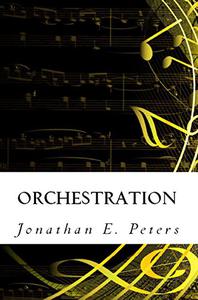
Jonathan E. Peters, "Orchestration"
English | 2018 | ISBN: 1720528373 | ASIN: B07DS9CGNP | EPUB | pages: 345 | 6.2 mb
INCLUDES: free life-time access to on-line quizzes and audio examples for each lesson.
Learn the fundamentals of instrumentation and orchestration in this, the latest book in a series of books on music by award-winning composer, Jonathan Peters.
WHAT ARE THE REQUIREMENTS FOR THIS COURSE?
A computer or mobile device with an internet connection.
You must be able to read music and have a basic understanding of music notation.
You must have a basic knowledge of music theory and music composition. If you do not already have a rudimentary understanding of music theory and music composition, it is recommended that you take a theory and composition course before beginning this course. (See "Music Theory", "Music Composition 1" and "Music Composition 2" by the same author.)
You will need some type of music notation software. Musescore is free notation software that can be downloaded at:
https://musescore.orgAlthough not a necessity, it is very beneficial to have some ability to play the piano (or other instrument).
WHAT AM I GOING TO GET OUT OF THIS COURSE?
Free life-time access to on-line quizzes and audio examples for each lesson.
You will be learning from a professional and award-winning composer and orchestrator.
You will learn about orchestral instruments and their notation, transposition, ranges, register strengths, dynamic capabilities, playing techniques, and more.
You will learn how to properly prepare a score and parts and tips on how to proof them before publishing or performance.
You will acquire knowledge of the different types of timbres and textures and how and why to use them.
You will learn how spacing and voicing is used in orchestral chords and how to score chords for the various sections of the orchestra and as a whole.
You will learn about various instrument combinations, and the different roles each instrument and section plays within the whole.
You will learn many orchestration tips and techniques to help you in your orchestrations.
You will learn strategies for reading scores.
You will study hundreds of score examples, diagrams, and audio clips.
You will get access to many free external resources.
You will have your knowledge tested with nearly 1,000 quiz questions.
WHO SHOULD TAKE THIS COURSE?
Beginning to intermediate level composers and orchestrators
Composers who want to expand their writing skills into the area of orchestration
All musicians wanting to learn about instrumentation and orchestration
People who have had a course in either instrumentation or orchestration but not both and are missing half the picture
Links are Interchangeable - No Password - Single Extraction



